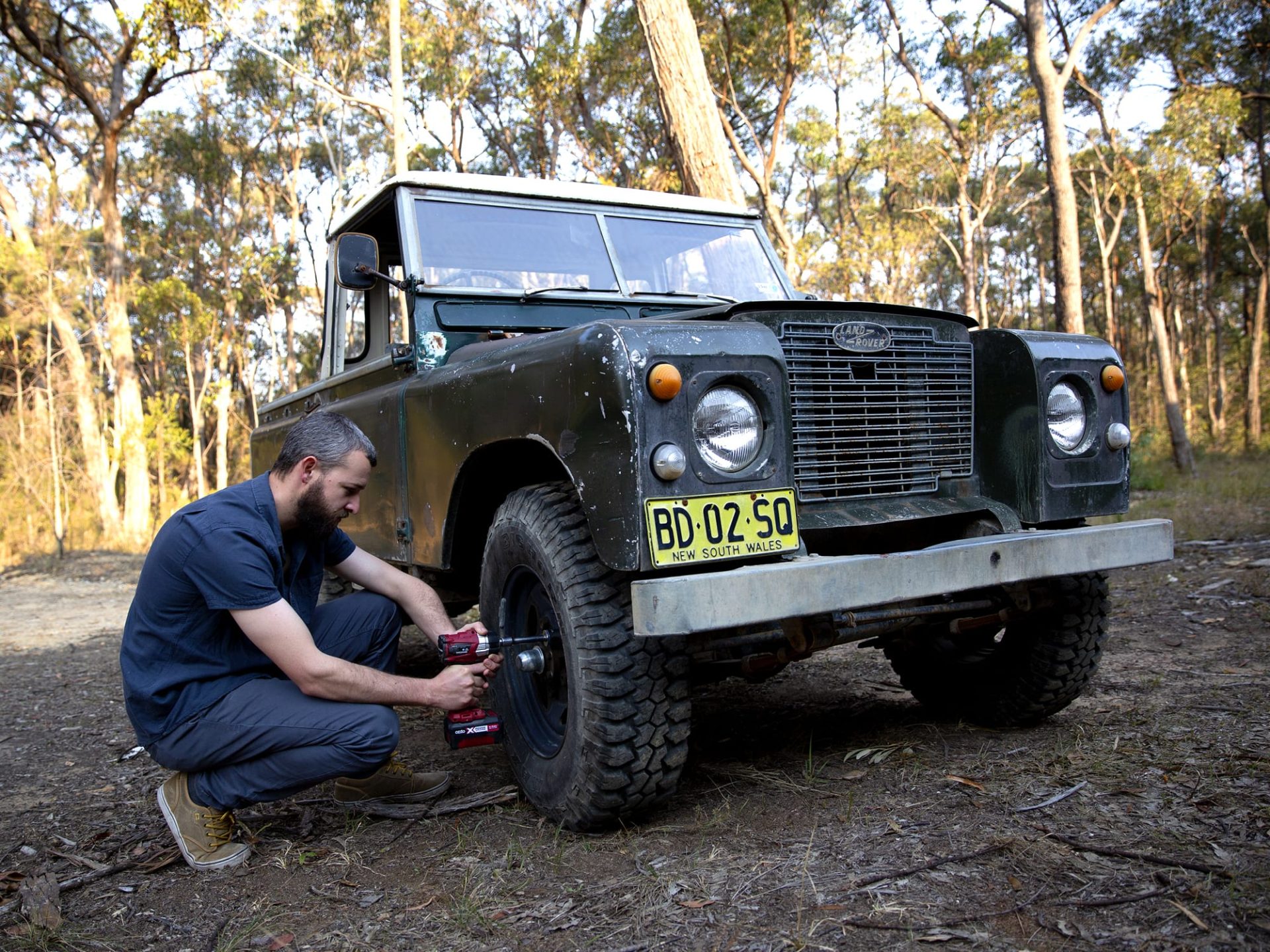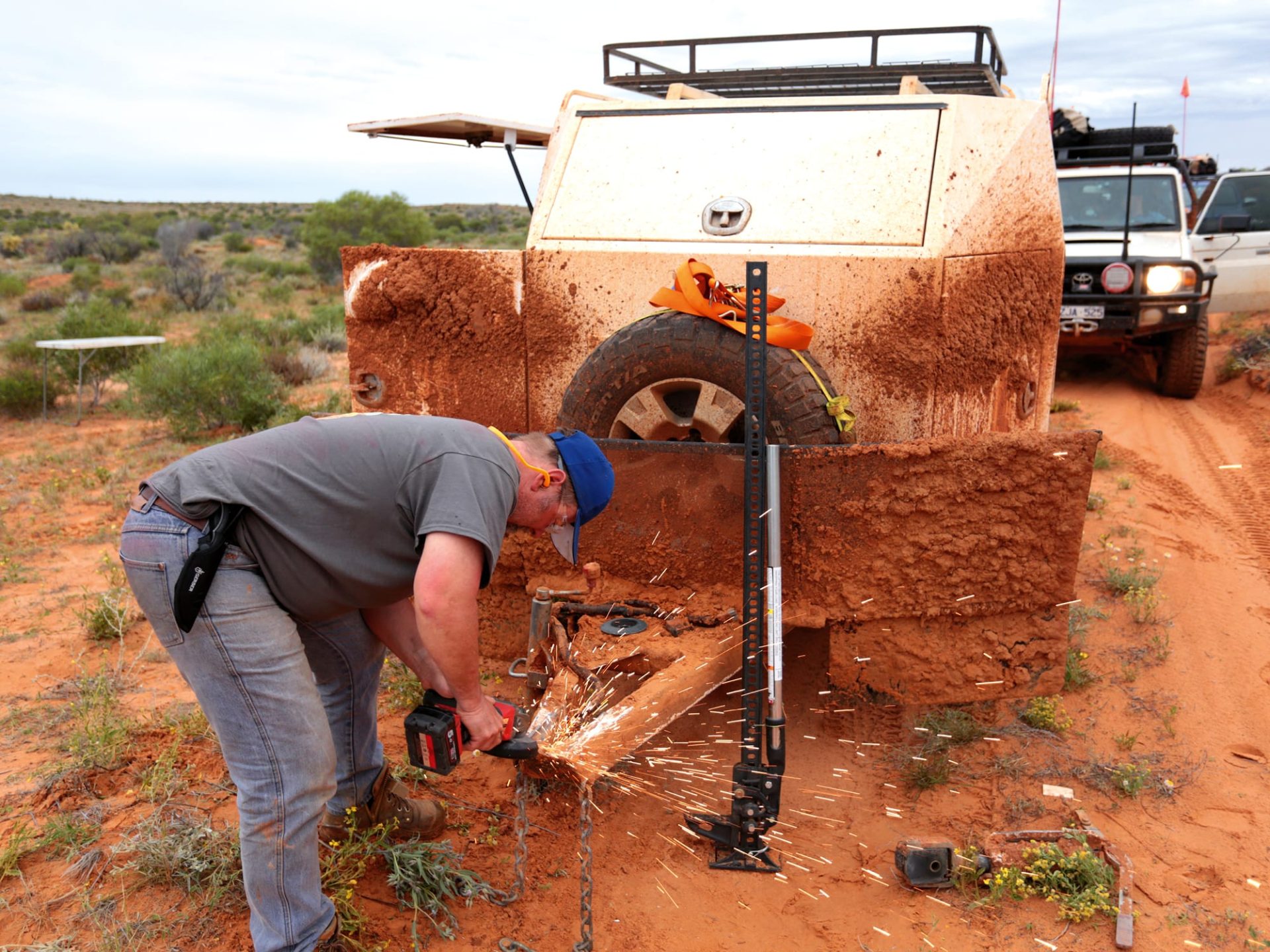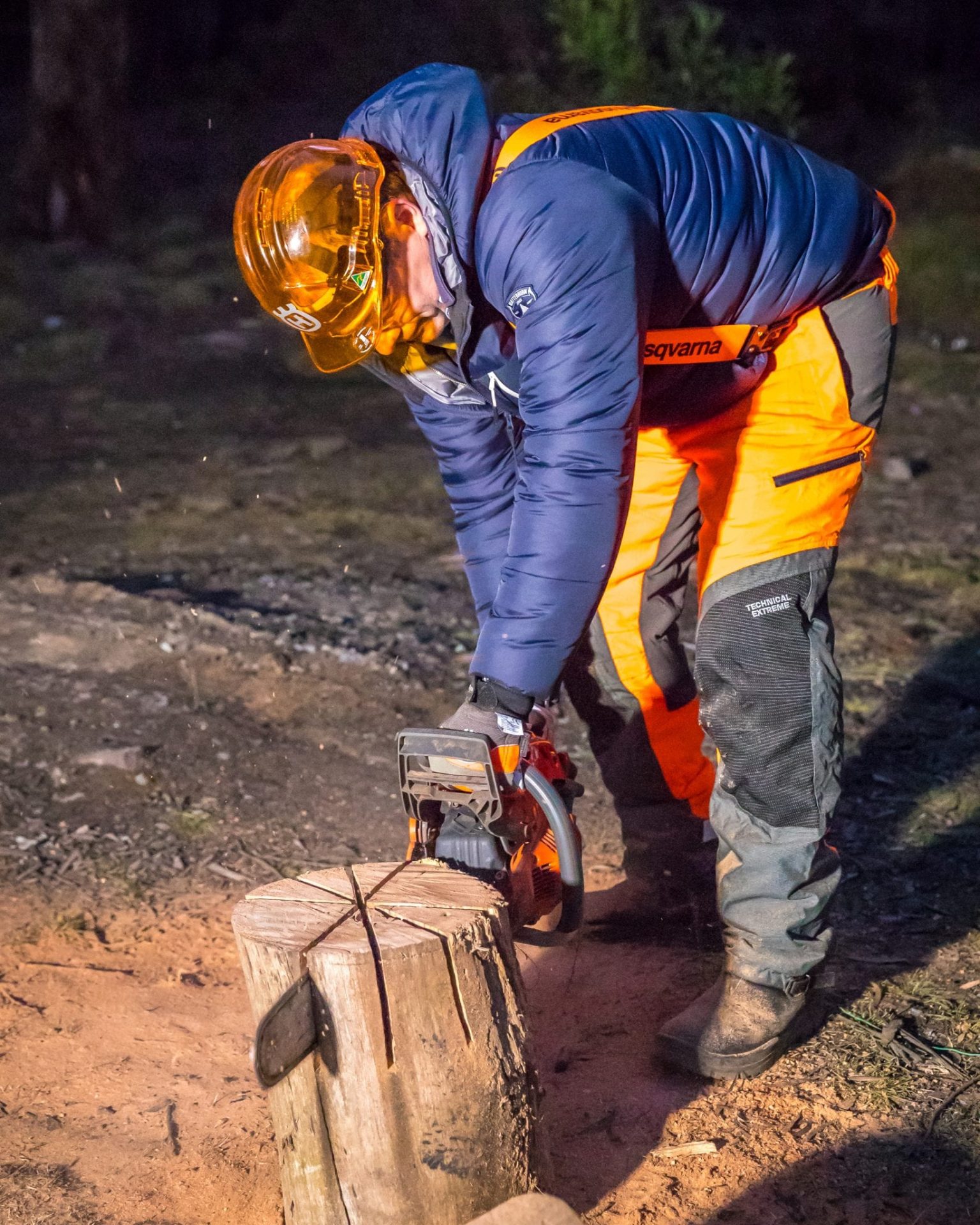Advertisement
Advertisement
When something goes wrong, you want help to hand. And when that wrong is mechanical, power tools make jobs easier. With vastly improved battery and brushless motor technology, 18V tools are more powerful and controllable than ever before, and they run for longer too. Whether it’s changing wheels, removing debris from your driveline, adjusting bent guards or clearing trees from the track, these cordless 18V power tools will make the difficult and dirty jobs a breeze. You can generally swap battery packs within a range, but once you start with a brand it makes financial sense to stick with that brand. Not all brands do carry chainsaws though, so it pays to do your research before letting moths out of your wallet.
Impact Wrench (AKA RATTLE GUN)
Ask anyone who’s stood on a breaker bar trying to undo a wheel nut and they’ll agree a rattle gun would be great to have. With a good set of impact sockets, nearly every nut or bolt can be removed without filling the swear jar. Some components require ridiculous torque; I remember twisting a ½-inch drive breaker bar trying to remove a suspension link on the side of a track, and ended up chiselling the nut off. A rattle gun with the appropriate socket would have had it off without breaking a sweat … and it could have brought it close to torque when refitting too!

Angle Grinder
Car parts bend, and to fix them, sometimes you have to remove material. This is where our friend Mr Angle Grinder comes in. He has two jobs: cutting and grinding. Paired with a slitting disc, it is a great tool for shortening bent exhaust pipes, disc brake stone guards, undoing rusted nuts and removing tired leaf spring U-bolts. Use a flap wheel to quickly clean gasketed mating surfaces or use a grinding disc to taper off a mashed bolt thread to get the nut off. Good for cleaning up before and after welding too, if it comes to that! For most people, a 4-inch (100mm) with a couple of slitting discs, a flap wheel and a grinding disc are enough. Leave the widow-maker 9-inch in the workshop.
Drill
Your first thought may be “everyone should take a drill”. Deeper thought turns to when you might need to drill a hole for a trackside repair. Not often! This tool is more for on-the-go installations and modifications. However, add a couple of screwdriver bits and some smaller socket bits and it’ll make short work of fasteners inside and underneath your 4X4 and trailer. Take a 6mm drill bit for reaming out punctures before plugging them. Get into camp and your imagination can make it even more useful – need to whisk an egg? Thickened cream for dessert? Go wild!

Portable Radio
Some people love to camp with music, others despise the noise. Those in the first group could do worse than pick up a jobsite radio, which are robustly built and waterproof. They usually have Bluetooth or at least an auxiliary input, and many have USB charging ports to keep your phone topped up too. Many aren’t especially compact units though, so if space is at a premium, leave it at home.
Hand Vaccum
This may come as a bit of a surprise, as it won’t help you with mechanical repairs. However, a handy little vacuum is great for getting dust out of tyres when fixing flats, and even better for keeping your camper trailer, tent or swag clean. I already carry a dustpan and brush, but a hand vac would take up very little more room and do a much better job.
Chainsaw
Once solely the domain of two-stroke aficionados, chainsaws are now available with battery power. Usually sporting two 18V packs for worthwhile power or a much higher voltage single pack, they are lightweight, reliable, don’t need flammable, stinky and easily spilt fuel, and will never foul a plug. Perfect for all bar the biggest trees that’d stop most amateur ad-hoc arborists anyway. Once in camp, a battery-powered chainsaw is much quieter for chopping up firewood too, and hence less disturbing to other campers. Just like a petrol chainsaw, the chain still needs lubrication, adjustment and sharpening, but that’s the only maintenance and mess these tools require.

Honourable Mentions
While you’re checking out the tools we listed here, there’s a few others that may be handy out bush and at home. Look out for panel, spot and flood lights, rechargeable head torches, electric fans for hot summer nights, high volume low pressure inflators for airbeds and floaty toys, and for the pyromaniacs, a worksite blower gets the fire going really quickly! Just be wary of tyre inflators – while they may claim 150psi maximum pressure, with advertised flow rates of 16 litres per minute without load, that’s super-slow compared to the cheap end of ‘proper’ 12V compressors that pump out around 70 litres per minute.
Batteries and Safety Gear
With acronyms like LiPo, NiMH, NiCad, Li-Ion and Ah, batteries can get a bit confusing. NiCad are the oldest technology – they were great in the 80s. NiMH came next but have been dramatically trumped by the new Lithium Polymer (LiPo) and Lithium Ion (Li-Ion) batteries. These have a much greater energy density, higher voltage and lighter weight, making them far more efficient for our use. Look for 18V systems or higher; lower voltage batteries just don’t give enough power. Ah stands for Amp Hours, and the higher the number, the longer the tool can run for.
Of course, most of our 4X4s operate with 12V systems, so charging at 18V appears problematic. Some brands, including Makita and Milwaukee, offer 12V input charging stations specifically designed for in-car use, making it even easier! The alternative is a pure sine wave inverter to bring the 12V up to 240V so the original charger can be used. Each battery pack will hold its charge for weeks if not months without appreciable loss, so if you charge at home first, you only need to charge them once you use them on a trip rather than trickle-charging them.
Safety gear is no less important at home or away. The leather rigger gloves in your recovery bag are great for power tool use, while safety goggles are critical and take up the space of a pair of sunglasses. A full face mask is better if you can carry it, especially when using a chainsaw.